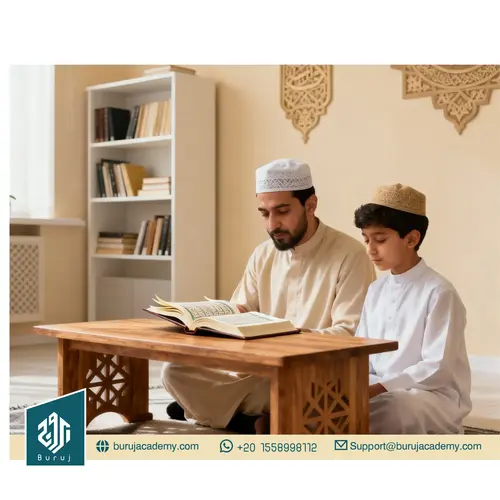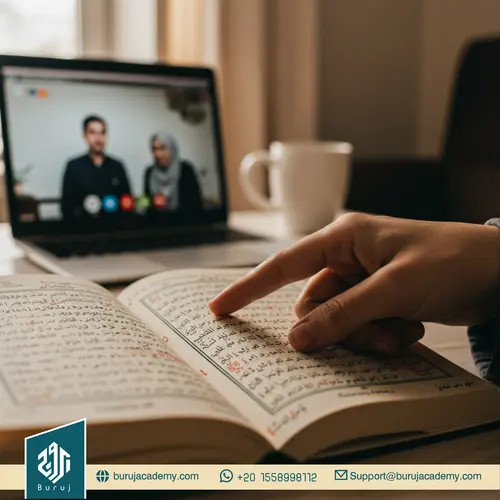The Seeker’s Guide to the Quran Translated in English
For millions of English speakers around the globe, there is a profound desire to connect with the message of the Quran. Whether born into the faith or exploring Islam for the first time, the journey to understand this sacred text is one of immense spiritual significance. For most, this path begins with a search for the Quran translated in English.
An English translation is an essential and invaluable window into the divine revelation. It provides access to the foundational stories, laws, and wisdom that have guided over a billion people for more than 1,400 years. However, it is crucial to understand what a translation is—and what it is not. A translation is a map, but it is not the territory. It is a reflection, but it is not the source of the light itself.
This guide is designed to help you navigate the world of English Quran translations effectively. We will explore the inherent challenges of translating the Quran, how to choose and use a translation wisely, and how to take the ultimate step from reading a translation to understanding the Quran in its original, breathtaking Arabic.
The Inevitable Challenge: Why No Translation Is Perfect
Before choosing a translation, it’s important to appreciate why the Quran is considered untranslatable in its truest sense. The original Arabic text is believed by Muslims to be the literal word of God, and its language is seen as a miracle in itself. Here’s why no English version can fully capture the original.
1. The Miraculous Nature of Quranic Arabic (I'jaz)
The concept of I'jaz al-Qur'an refers to the inimitable and miraculous quality of the Quran’s language. Its literary style, rhetorical power, rhythmic beauty, and linguistic depth are considered unique and beyond human ability to replicate. When you read a translation, you are reading the translator’s best attempt to convey the meaning, but the divine aesthetic and phonetic beauty are lost. The feeling of hearing the Quran recited in Arabic is an experience that a translation cannot reproduce.
2. The Layers of Meaning in a Single Word
The Arabic language, particularly the classical Arabic of the Quran, is incredibly dense with meaning. A single Arabic word can often have multiple layers of meaning, encompassing a range of concepts that would require a full sentence to explain in English. A translator must make a choice, selecting the one English word or phrase they believe best fits the context. In doing so, other valid and important meanings are often left behind.
3. Cultural and Historical Context
The Quran was revealed in a specific time and place—7th century Arabia. It is filled with references, idioms, and concepts rooted in that context. While its message is universal and timeless, understanding the original context is key to grasping the full meaning. A good translator will use footnotes to explain this, but the direct cultural link is inevitably weakened in translation.
4. The Translator’s Own Interpretation
Every translator is an interpreter. Their scholarly background, their school of thought (madhhab), and their own understanding of the text will influence their word choices. This is why different English translations can sometimes offer slightly different meanings for the same verse. There is no single “official” translation; each one is a respected scholarly effort to interpret the divine message.
How to Choose and Use an English Translation of the Quran
Knowing these challenges, how can you best approach reading the Quran translated in English? The key is to see it as a tool for learning and a starting point for a deeper journey.
1. Compare Different Translations
Don’t rely on just one translation. If a particular verse seems confusing or especially important, read it in two or three different versions. Some popular and respected translations include:
- Yusuf Ali: Known for its classical English and extensive commentary.
- Marmaduke Pickthall: One of the earliest translations by an English Muslim, known for its majestic tone.
- Sahih International: A popular modern translation known for its accuracy and readability.
- M.A.S. Abdel Haleem: A more recent translation praised for its fluid, contemporary English.
By comparing them, you get a more holistic view of the possible meanings of the original Arabic.
2. Read the Footnotes and Commentary (Tafsir)
The most valuable translations are those that come with extensive footnotes. These notes are where the translator explains why they chose a certain word, discusses the historical context, or presents alternative interpretations. Reading the footnotes is just as important as reading the text itself. This is your first step into the world of Tafsir (Quranic exegesis).
3. Use it as a Stepping Stone, Not a Final Destination
The most important tip is to approach a translation with the right intention. Use it to gain an initial understanding, to follow along during prayer, and to learn the basic stories and commandments. However, let it be the catalyst that sparks your desire to understand the Quran as it was revealed.
The Ultimate Goal: Moving Beyond Translation to Understanding
While translations are a mercy and a gift, the most profound, life-changing connection with the Quran comes from engaging with it in its original language. When you begin to understand even basic Quranic Arabic, the text transforms from a set of translated statements into a direct, personal conversation. The rhythm becomes more beautiful, the meanings become clearer, and your prayer (salah) becomes more focused and heartfelt.
This may seem like a daunting goal, but it is more accessible than ever before. The journey of learning Quranic Arabic is one of the most rewarding spiritual and intellectual pursuits a person can undertake.
Your Pathway to Understanding the Quran in its Original Form
At Buruj Academy, our entire mission is to help students like you bridge the gap between translation and true understanding. We have designed a clear and supportive pathway for this journey.
Start with Quranic Arabic
You don’t need to become a master of the entire Arabic language to begin. We specifically focus our programs on Quranic Arabic—the vocabulary and grammar used in the Holy Book. The speed at which you start recognizing words and understanding verses directly will amaze you. To see how we structure this journey, explore our comprehensive online Arabic courses.
Learn with Expert, Native Guidance
Understanding the nuances of the Quran requires a teacher who has dedicated their life to its study. A qualified instructor does more than just teach vocabulary; they explain context, clarify complex grammar, and answer your deepest questions. Our instructors are native Arabic speakers and seasoned professionals, many of whom are graduates of the prestigious Al-Azhar University. We invite you to meet our expert native tutors and see the difference true expertise makes.
Join a Community of Seekers of Translated Quran in English
Your journey to understand the Quran is a shared one. By joining Buruj Academy, you become part of a global community of students on the same path. We encourage you to connect with us and fellow learners.
For daily inspiration and educational content, follow us on Facebook. For video tutorials and beautiful recitations, subscribe to our YouTube channel. And to see updates and connect with our community, join us on Instagram.
Conclusion: From a Translation to a Transformation
A Quran translated in English is an essential tool and a blessed starting point. It opens the door to divine wisdom for those who do not yet know the language of its revelation. But the door is meant to be walked through.
The richest and most transformative experience lies in understanding the Quran directly, feeling its rhythm, and connecting with the words of Allah without a filter. This journey from reading a translation to understanding the original is the journey from knowledge to a deeper, more personal faith.




